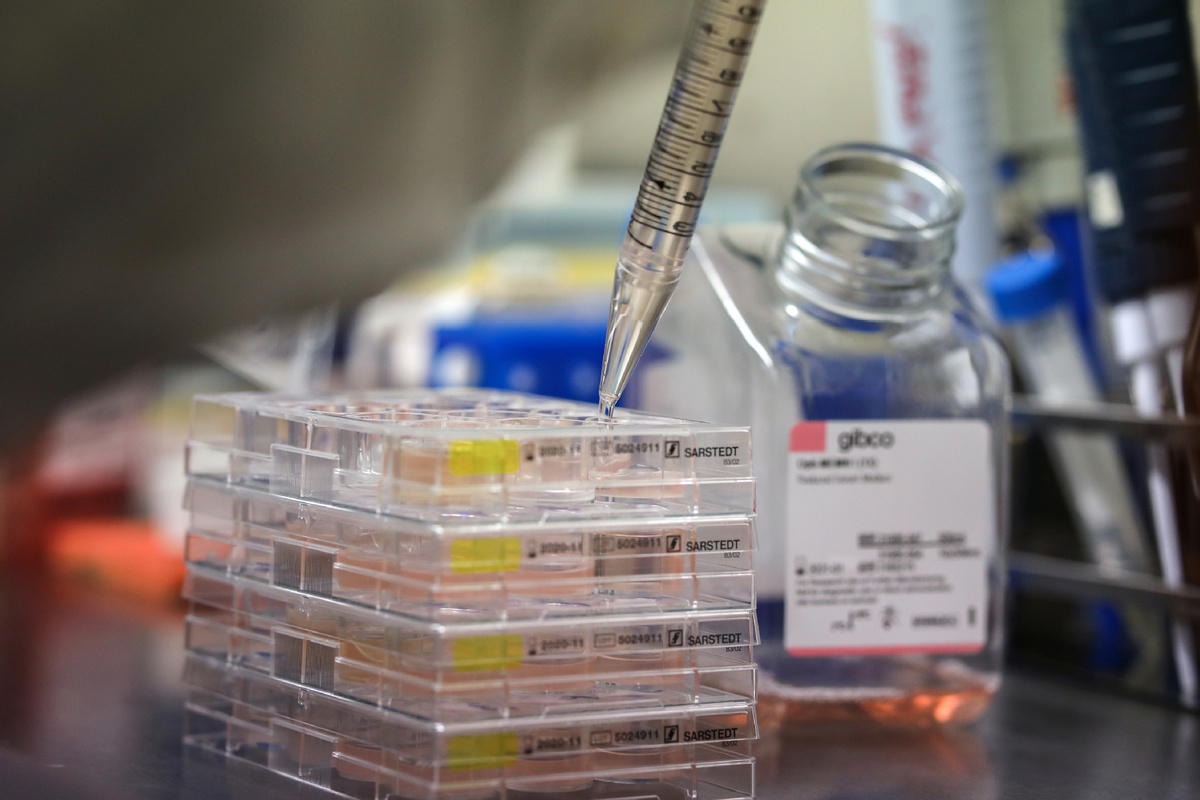US researchers develop COVID-19 spike proteins to identify antibodies, prevent infection


WASHINGTON -- Researchers at Texas A&M University are developing spike proteins that prevent the SARS-CoV-2 virus from binding to human cells, protecting people from future COVID-19 infections, according to a latest release of the university.
Researchers are producing spike proteins to identify antibodies that can attach to the SARS-CoV-2 spike protein receptor-binding domain and prevent the virus from binding to key sites, thus obstructing the virus from entering and infecting human cells.
"There are hundreds of virus-fighting antibodies in plasma, and using recombinant spike proteins is the fastest way to detect the correct ones we need to fight COVID-19," said Zivko Nikolov, professor in the Department of Biological and Agricultural Engineering at Texas A&M University.
The study is derived from the case of Kent Brantly, an American doctor who donated his plasma after surviving Ebola to help others recover as well, according to the study.
Doctors and scientists identified antibodies in his blood that could recognize the Ebola virus and prevent it from multiplying further in patients.
Researchers are making versions of COVID-19 spike proteins that can be used to measure antibody responses to the SARS-CoV-2 virus spike proteins in order to aid in the recombinant development of these antibodies in the future.

































